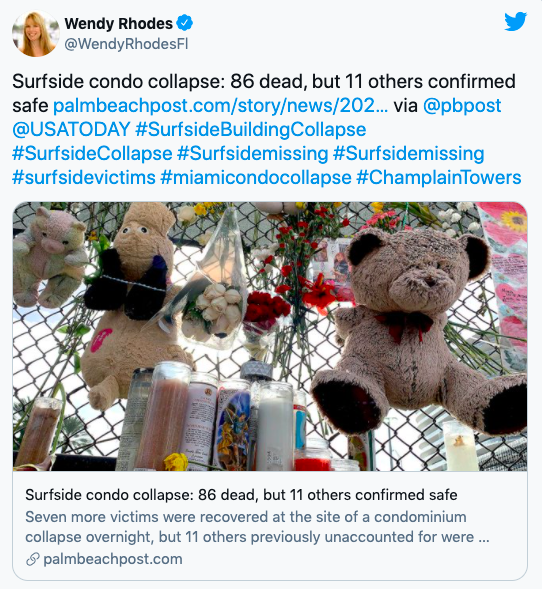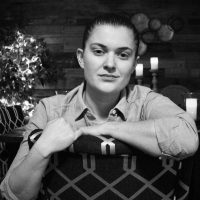Surfside condo collapse: 86 dead, but 11 others confirmed safe https://t.co/OTPk8n4yoD via @pbpost @USATODAY #SurfsideBuildingCollapse #SurfsideCollapse #Surfsidemissing #Surfsidemissing #surfsidevictims #miamicondocollapse #ChamplainTowers
— Wendy Rhodes (@WendyRhodesFl) July 10, 2021
“Only 15 percent of people who have received CPR by a bystander while under cardiac arrest will survive.”
The First Aid instructor’s statement echoed throughout the tiny room, piercing through the mumble of side conversations. All the desks and chairs were vacant as the dozen of us kneeled on the floor to the side of our dummies, grasping and flexing our sore wrists.
We had just spent the last 15 minutes throttling the heels of our hands into the chests of fraudulent cardiac arrest victims. As we performed CPR (cardiopulmonary resuscitation) on our respective dummies in unison, the instructor repeated the same mantra over and over: Thirty chest compressions. Two rescue breaths. Thirty chest compressions. Two breaths. Do it again.
I had debated signing up for this CPR and First Aid class for weeks. I absolutely cannot look at vomit. I get queasy at the sight of blood. When I got the toenail removed on my big toe last year, I was unable to look at it for days. I would have made a terrible doctor.
However, I hike a lot in the prestigious White Mountains of New Hampshire. I carry two first aid kits in my pack; I added the second one as there has been more than a couple of times where I had come across a hiker who was injured or bleeding. If I ever came across a fellow hiker in cardiac arrest, I would be hopeless. So, here I was, learning CPR in hopes that I will never have to use it.
“Only 15 percent of people survive?” someone finally exclaimed from the back of the room, as we digested the grim statistic the instructor presented to us. “What’s the point then?”
I read an article once about archaeologists in Israel who had come across the prehistoric remains of a young adult’s metatarsal bone. It was estimated that the remains of this person were roughly 36,000 years old. The bone exhibited signs of a severe fracture that had healed exceptionally well. The foot was most likely splinted, which indicates that the medical skills of our early human ancestors were pretty advanced.
This also provides evidence of the earliest known act of kindness and empathy among the human species.
This young adult could have very well been left for dead. However, they were nursed back to health. Probably unable to walk for months, they were assisted. Maybe they were even carried. But they weren’t left for dead as there were others who cared.
Compassion and love have been engraved into our DNA. It surfaces in every apology we have ever made to a friend after a bad fight. It’s been demonstrated to us by our moms and dads as they bandaged and kissed every scrape we ever got growing up. It’s in every “text me when you get home” and “have you eaten yet?”
It’s in footage of rescuers pulling survivors out of the rubble on 9/11.
It materialized as two blasts ripped through the crowd at the finish line of the 2013 Boston Marathon, and runners who had just crossed the finish line after 26.2 miles continued to run to Mass General Hospital to donate blood for the 264 people who were injured.
And it emerged as hospital nurses, decked out in full PPE, held the hands of dying COVID-19 patients who couldn’t have their family there to comfort them.
There will always be unspeakable and awful things that happen that we will never be able to fully comprehend. But I know that compassion, tenderness, and human decency will always outweigh the bad in this world.
And as the First Aid instructor, who is standing at the back of the room with his arms folded, mulls over the question, “What’s the point then?”
He simply answers:
“It gives people a chance.”












Read 0 comments and reply